
Find Help
More Items From Ergsy search
-

Is impetigo contagious?
Relevance: 100%
-
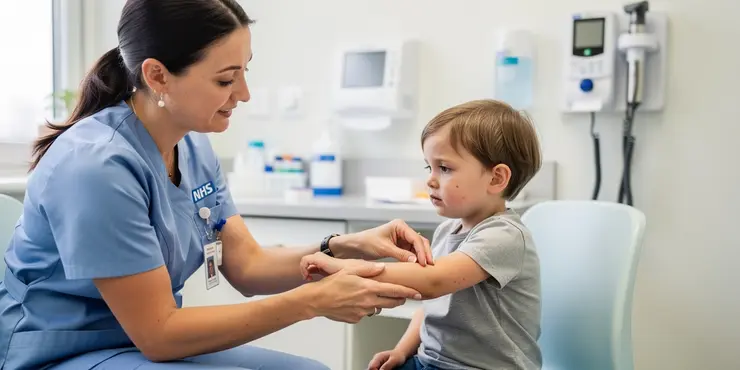
Is there a vaccine for impetigo?
Relevance: 99%
-
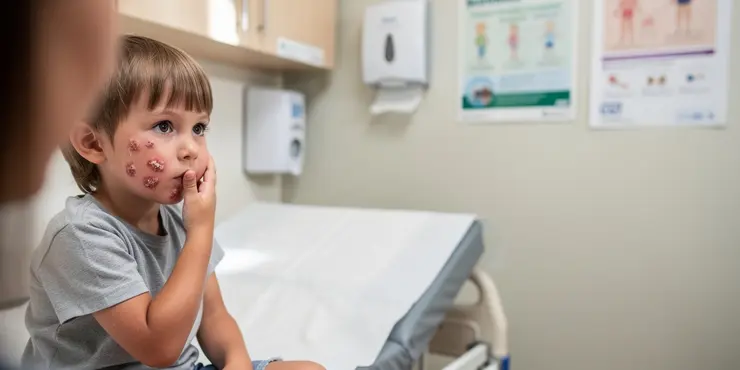
Is impetigo painful?
Relevance: 99%
-
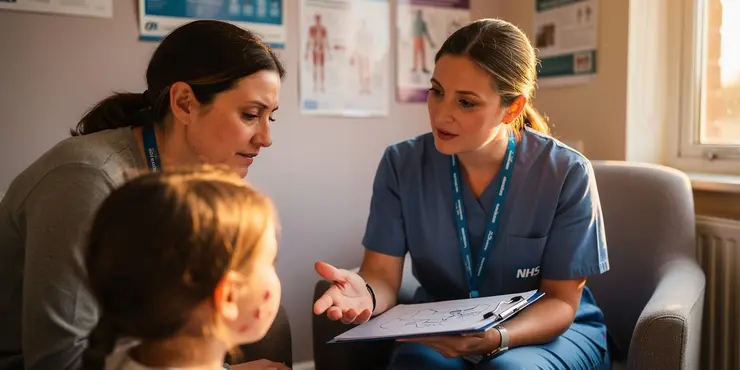
How is impetigo treated?
Relevance: 95%
-
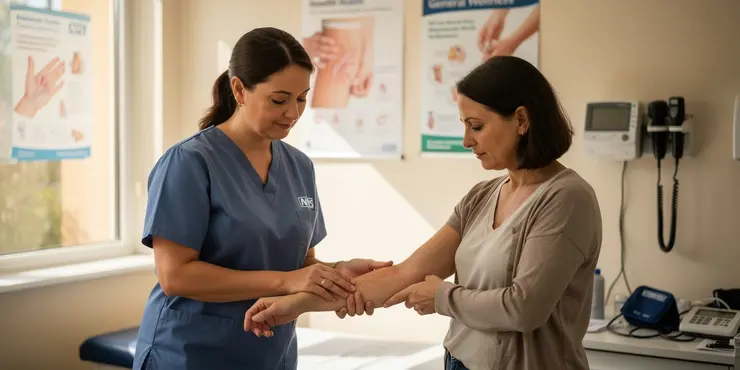
Can adults get impetigo?
Relevance: 92%
-

Can impetigo become serious?
Relevance: 92%
-

Pharmacy First – Impetigo Service
Relevance: 91%
-

Minor ailment scheme - Impetigo
Relevance: 91%
-

Are there any home remedies for impetigo?
Relevance: 90%
-

How can I tell if I have impetigo?
Relevance: 89%
-
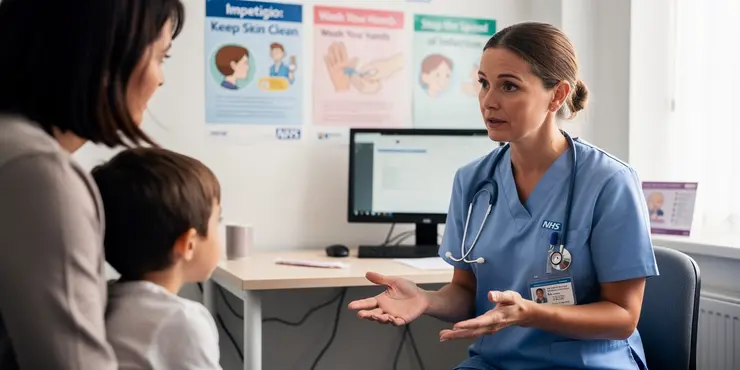
How can I prevent the spread of impetigo?
Relevance: 87%
-
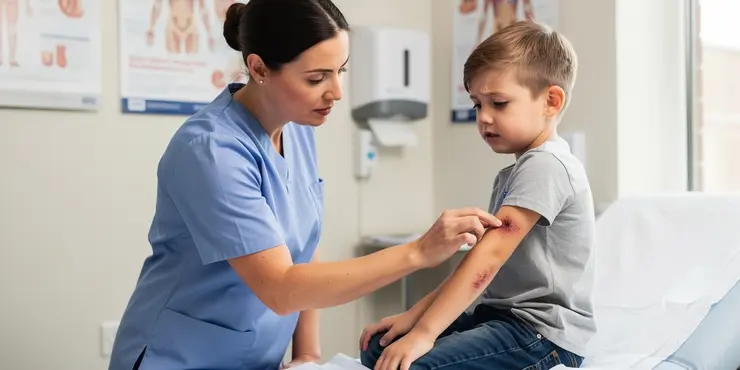
Can I get impetigo more than once?
Relevance: 86%
-

When should I seek medical help for impetigo?
Relevance: 86%
-

How long does it take for impetigo to heal?
Relevance: 85%
-
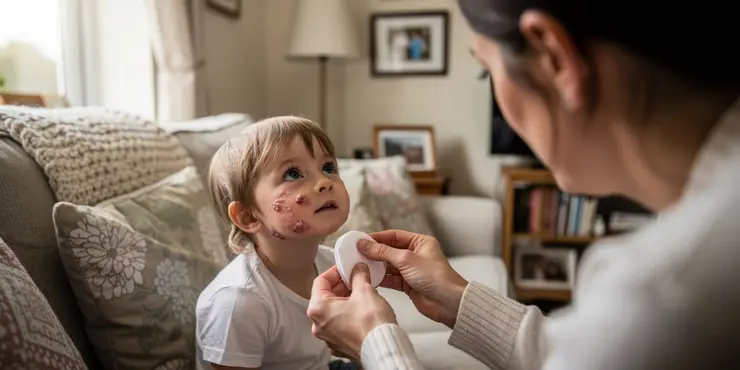
Can impetigo spread to other parts of my body?
Relevance: 85%
-
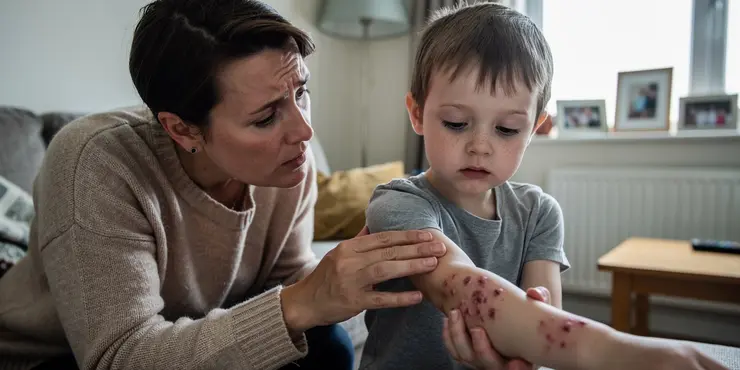
What should I do if my child has impetigo?
Relevance: 61%
-

Can scabies cause complications?
Relevance: 24%
-
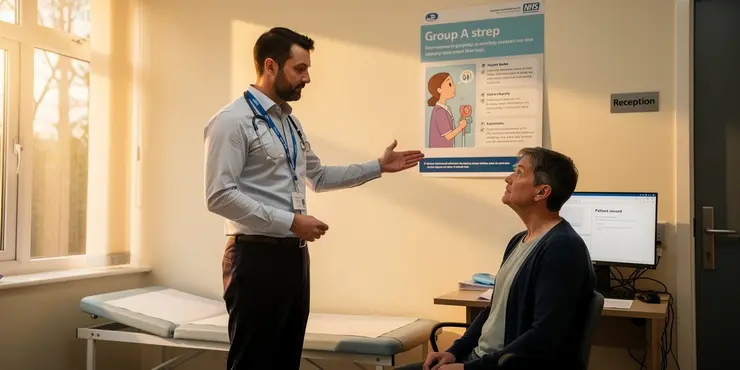
Group A strep: North East GP tells you what you need to know
Relevance: 13%
-
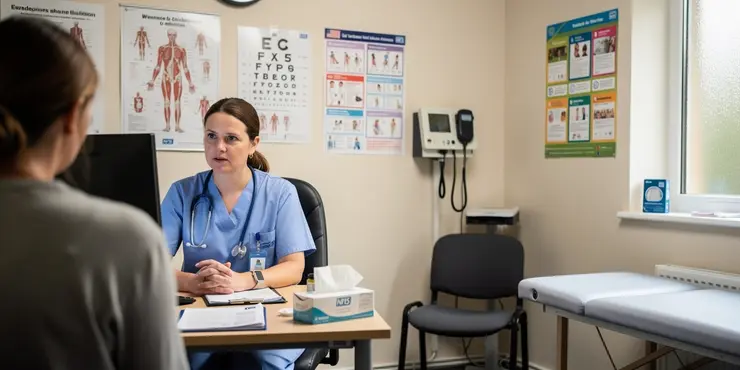
What are the complications of chickenpox?
Relevance: 13%
-
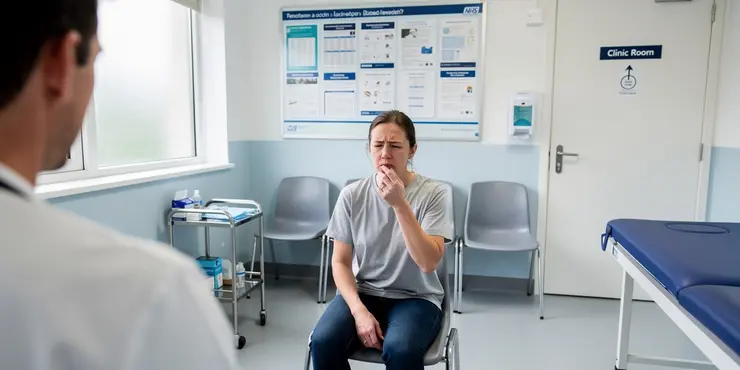
What are the symptoms of a cold sore?
Relevance: 7%
-
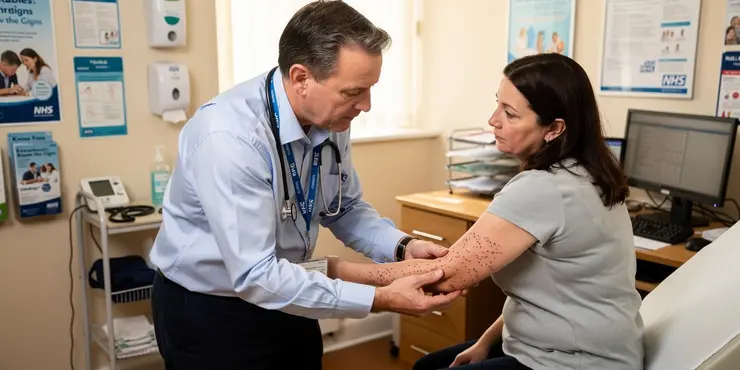
What are Scabies?
Relevance: 7%
-
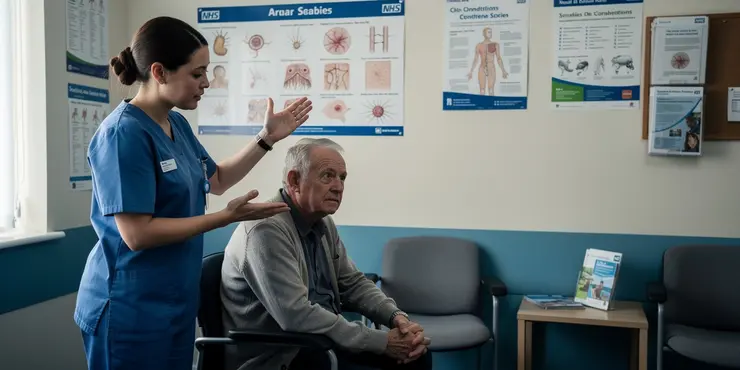
What are scabies?
Relevance: 6%
-

What should I do if I think I have scabies?
Relevance: 5%
Understanding Impetigo
Impetigo is a common and highly contagious skin infection that is most prevalent among young children, although it can affect individuals at any age. It is primarily caused by two types of bacteria: Staphylococcus aureus and Streptococcus pyogenes. The infection typically begins as red sores on the face, particularly around a child's nose and mouth. Over time, these sores can burst, leaving a thick, golden crust. While impetigo is generally not serious, it can sometimes lead to complications if not properly managed.
How Impetigo Spreads
Impetigo spreads easily through close contact, making it frequent in schools and nurseries. It can spread by touching the lesions directly, or via contact with items like towels, clothing, or toys that have been contaminated. Maintaining good hygiene and ensuring infected individuals avoid contact with others can help control outbreaks. Washing hands frequently and avoiding sharing personal items are simple, effective preventive measures.
Potential Complications of Impetigo
Though impetigo is not typically serious, there are potential complications if the infection is not addressed. A rare but serious development is cellulitis, where the infection spreads to deeper layers of the skin, causing redness, swelling, and pain in the tissue. This condition requires prompt medical attention and usually treatment with antibiotics.
Another possible complication is post-streptococcal glomerulonephritis, which is an inflammation of the kidneys following infection with streptococcus bacteria. This can lead to high blood pressure and kidney problems, although it is relatively uncommon. Ensuring that impetigo is treated early and thoroughly can mitigate these risks.
When to Seek Medical Help
It is advisable to consult a healthcare professional if you suspect impetigo, especially if the sores do not improve after a few days or are spreading rapidly. A doctor can usually diagnose impetigo through its distinctive appearance and may prescribe topical or oral antibiotics, depending on the severity. Completing the full course of antibiotics as directed is important to ensure the infection is fully eradicated and to prevent complications.
Preventing Serious Developments
Early detection and treatment are key in preventing impetigo from becoming serious. Parents and caregivers should be vigilant for signs of skin infection, especially in young children. Schools and childcare providers should have policies in place to prevent the spread of infections like impetigo. Teaching children about hygiene, such as regular handwashing and not sharing personal items, plays a crucial role in prevention.
In summary, while impetigo is typically a mild infection, it can become serious if left untreated. Prompt treatment and good hygiene practices can effectively prevent complications, ensuring that impetigo remains a minor inconvenience rather than a major health issue.
Understanding Impetigo
Impetigo is a skin infection. It spreads easily, especially among young kids. Anyone can get it, though. Two types of germs, called bacteria, cause impetigo: Staphylococcus aureus and Streptococcus pyogenes. It starts with red spots on the face, usually around the nose and mouth. These spots can pop and turn into a thick, yellow crust. Impetigo is not very serious, but if you don’t take care of it, it can cause problems.
How Impetigo Spreads
Impetigo spreads through touch. It’s common in schools and nurseries because kids are close to each other. You can get it by touching the sores or by using things like towels, clothes, or toys that someone with impetigo has used. Washing hands often and not sharing personal things can help stop the spread. Good hygiene is very important.
Potential Complications of Impetigo
Impetigo is usually not serious. But if you ignore it, it can cause problems. One rare problem is cellulitis. This is when the infection goes deeper into the skin. It can make the skin red, swollen, and painful. Cellulitis needs a doctor's care and usually medicine called antibiotics.
Another rare problem is with the kidneys, called post-streptococcal glomerulonephritis. This can happen after a streptococcus infection. It can cause high blood pressure and kidney trouble, but it is not common. Treating impetigo early helps stop these problems from happening.
When to Seek Medical Help
See a doctor if you think you have impetigo. Go especially if the sores do not get better in a few days or if they spread fast. A doctor can often tell it's impetigo by looking at the sores. They might give you cream or pills to kill the germs. It’s important to use all the medicine as told to make sure the infection goes away and doesn't cause problems.
Preventing Serious Developments
Finding and treating impetigo early is important. Parents and carers should watch for signs of skin problems in children. Schools and childcare centers should have rules to stop the spread of infections like impetigo. Teaching kids to wash their hands often and not share personal items helps a lot in stopping the spread.
In short, impetigo is usually mild. But if you don’t treat it, it can become serious. Quick treatment and good hygiene can stop problems. This way, impetigo stays just a minor issue and not a big health problem.
Frequently Asked Questions
What is impetigo?
Impetigo is a common and highly contagious bacterial skin infection that mainly affects infants and children.
Can impetigo become serious?
While impetigo is generally not serious, complications can occur if it spreads to deeper tissues or goes untreated.
What are the common symptoms of impetigo?
Symptoms include red sores that quickly rupture, ooze for a few days, and then form a yellowish-brown crust.
How is impetigo spread?
Impetigo is spread through direct contact with the sores of an infected person or by touching items they have used, like towels or clothing.
Can adults get impetigo?
Yes, although it's more common in children, adults can also get impetigo.
What bacteria cause impetigo?
Impetigo is usually caused by Staphylococcus aureus or Streptococcus pyogenes bacteria.
Can impetigo lead to more serious infections?
Yes, if left untreated, it can lead to deeper skin infections like cellulitis or even systemic infections in rare cases.
Is impetigo itchy or painful?
Impetigo can be itchy, but it is not usually painful. However, scratching can spread the infection.
How is impetigo diagnosed?
A doctor can diagnose impetigo based on the appearance of the rash. Sometimes, a sample of the bacteria may be tested to confirm the diagnosis.
What is the treatment for impetigo?
Impetigo is typically treated with antibiotic ointments or oral antibiotics, depending on the severity.
Is hospitalization required for impetigo?
Hospitalization is rarely required for impetigo and only in cases of severe complications.
Can impetigo cause scarring?
Impetigo usually heals without scarring, though scratching can increase the risk of scars.
How can the spread of impetigo be prevented?
Good hygiene, avoiding contact with infected individuals, and keeping wounds clean can help prevent the spread of impetigo.
Are there home remedies for impetigo?
While medical treatment is recommended, keeping the skin clean and dry can support healing.
When should I seek medical attention for impetigo?
Seek medical advice if sores do not improve with basic hygiene, spread rapidly, or are accompanied by fever.
Can impetigo recur?
Yes, impetigo can recur, especially if there is ongoing exposure to infected individuals or poor hygiene practices.
Are there any risk factors for impetigo?
Risk factors include being a child, especially ages 2-5, living in warm, humid conditions, and close contact with infected people.
Is impetigo more common at certain times of the year?
Impetigo is more common in warm and humid weather, which can facilitate bacterial growth.
Can impetigo be mistaken for other skin conditions?
Yes, impetigo can sometimes be confused with other skin conditions like eczema or herpes.
How long is impetigo contagious?
Impetigo remains contagious until the sores stop oozing and are healing, or after 24-48 hours of antibiotic treatment.
What is impetigo?
Impetigo is a skin infection. It causes red sores or blisters.
The infection can be itchy or make skin feel sore.
It spreads easily by touch. It mostly affects children.
If you think you have impetigo, talk to a doctor or nurse.
Use simple words or pictures to learn more.
Impetigo is a skin infection. It is very catchy, so it can spread easily. It mostly happens to babies and kids.
Can impetigo become dangerous?
Impetigo is not usually a big problem, but it can be if it gets worse or is not taken care of.
What signs show you have impetigo?
Impetigo is a skin infection. Here are some signs to look for:
- Red spots or blisters on your skin.
- The spots can break open and get a yellow crust.
- Itchy skin around the red spots.
- The spots can spread to other parts of your body.
If you think you have impetigo, it's good to tell an adult or see a doctor. They can help you. Looking at pictures or videos about impetigo can also help you understand it better.
Look for red sores. These sores break open fast, then they leak for a few days. After that, they dry up and get a yellow-brown crust.
How does impetigo spread?
Impetigo is a skin infection.
It can spread in these ways:
- Touching the rash or sores of someone with impetigo.
- Sharing towels, clothes, or toys with someone who has impetigo.
- Touching something that has the germs on it.
Ways to stop the spread:
- Wash your hands often with soap and water.
- Don’t touch the sores.
- Don’t share things like towels and clothes.
Use picture cards or drawings to help understand the information.
Impetigo is a skin infection. You can catch it if you touch the sores on someone's skin. You can also get it if you touch things the infected person used, like their towel or clothes.
Can grown-ups catch impetigo?
Yes, grown-ups can catch impetigo too. Here is how:
- What is impetigo? It is a skin infection. It makes red sores.
- How do you catch it? You can catch it by touching someone who has it.
- How to avoid it: Wash hands often. Keep cuts clean.
- Need help? Ask a doctor or use online info.
Yes, grown-ups can get impetigo too, but kids get it more often.
What germs cause impetigo?
Impetigo is a skin infection. Two types of germs can cause it:
- Staphylococcus (say: staff-uh-loh-KOK-us): These are germs that can live on your skin or in your nose. Sometimes they can make you sick.
- Streptococcus (say: strep-toh-KOK-us): These germs can also make your skin sore.
If you want to learn more, you can use picture books or videos to help understand better. Ask an adult to help you find these resources.
Impetigo is an illness caused by germs. These germs are called Staphylococcus aureus and Streptococcus pyogenes.
Can Impetigo Cause Other Bad Infections?
Impetigo is a skin problem. If it is not treated, it can turn into a worse infection.
If you have impetigo, see a doctor. They can help make it better.
Ask a friend or family member to help you understand more. You can also use voice-to-text or read-aloud tools to help.
Yes, if you don’t treat it, it can make bigger skin problems like cellulitis. In rare cases, it can make you very sick all over.
Does impetigo make your skin itch or hurt?
Impetigo can make you feel itchy, but it usually doesn’t hurt. Be careful not to scratch because it can make the infection spread.
How do doctors know if someone has impetigo?
A doctor can tell if you have impetigo by looking at your rash. Sometimes, they might test a bit of the rash to be sure.
How do you treat impetigo?
Impetigo is a skin infection. You can make it better by:
- Seeing a doctor. They can give you special cream or medicine.
- Washing the sores gently with soap and water.
- Keeping the sores clean and covered with a bandage.
Helpful tips:
- Don't scratch the sores. It can make them worse.
- Wash your hands often with soap.
- Use tissues when you sneeze or cough, and throw them away.
- Ask someone to help you if you need it.
If you need more help, you can use:
- Pictures to understand better.
- Videos that show how to take care of the sores.
Impetigo is treated with medicine called antibiotics. You might use a cream or take it by mouth, depending on how bad it is.
Do you need to go to the hospital for impetigo?
People usually do not need to go to the hospital for impetigo. You only need to go if it gets really bad and has serious problems.
Does impetigo leave scars?
Impetigo is a skin infection. It usually gets better without leaving marks. If you scratch it, it might leave a scar.
How can we stop impetigo from spreading?
Impetigo is a skin infection. Here are some simple ways to stop it from spreading:
- Wash your hands regularly with soap and water.
- Keep your nails short and clean.
- Do not share towels, clothes, or bedding.
- Cover sores with a clean bandage.
- Stay home from school if you have impetigo.
Ask an adult for help if you are not sure what to do. Reading tools can also make it easier to read and understand this information.
To stop impetigo from spreading, you can do these things:
- Keep yourself clean.
- Stay away from people who are sick.
- Clean cuts and wounds well.
Can you treat impetigo at home?
Yes, there are simple ways to help with impetigo at home. Here are some tips:
- Keep the skin clean. Wash gently with soap and water.
- Don't touch or scratch the sores. This can spread germs.
- Use a clean towel every time. This helps stop germs from spreading.
- Ask an adult to put cream on the sores. A doctor can tell you the best cream to use.
- Cut your nails short. This helps keep germs from spreading if you scratch.
If the sores don't get better, talk to a doctor. They can help with medicine that works best.
Doctors can help make your skin better. Keeping your skin clean and dry also helps.
When should I see a doctor for impetigo?
If you have a sore or rash that might be impetigo, see a doctor. It's important to get help if:
- The rash gets bigger or worse.
- You have a fever (feel very hot).
- The sore is very red, swollen, or painful.
- The impetigo does not get better in a few days.
It's okay to ask someone you trust for help when you are worried about your skin. Taking pictures of the rash can help the doctor see what is wrong. Tell the doctor about any medicines you take.
Go to the doctor if sores do not get better when you keep them clean, if they spread fast, or if you have a fever too.
Can impetigo come back?
Yes, impetigo can come back. Impetigo is a skin infection. You can get it more than once. If you or someone you know has impetigo, a doctor can help. They might give you medicine to make it better.
Here are some tips to help stop impetigo from coming back:
- Wash your hands often. This keeps germs away.
- Do not scratch scabs or sores. This can spread the infection.
- Use clean towels and clothes. Do not share them with others.
- Keep your skin clean and dry.
If you are worried about impetigo, talk to a doctor or a nurse. They can give you more advice and help.
Yes, impetigo can come back. It might happen if you are around people who have it, or if you don't keep clean.
What makes someone more likely to get impetigo?
Things that make getting sick easier are being a child, especially if you are 2 to 5 years old. Living in hot and wet places can also make it easier. Being near people who are sick is another risk.
Is impetigo more common at certain times of the year?
Does impetigo happen more often in some seasons?
Impetigo is a skin infection. It can spread more in warm and humid weather. This often means it is more common in summer.
Here are some tips to understand better:
- Think about the weather: Impetigo likes warm and moist (wet) weather.
- Summer time: This is when it spreads more because it is hot and sticky.
If you need help, ask someone to explain it to you. You can also use pictures or videos to learn more.
Impetigo happens more when the weather is warm and wet. This helps germs grow.
Can impetigo look like other skin problems?
Yes, impetigo can look like other skin problems. Sometimes, people might think impetigo is a rash or bug bites.
It is important to see a doctor. They can tell you what it is. This helps you get the right medicine.
If you find it hard to read, you can:
- Ask someone to read with you.
- Use tools that read text out loud.
- Look for pictures or videos that explain impetigo.
Yes, impetigo can sometimes look like other skin problems. These might be eczema or herpes.
How long can you catch impetigo from someone?
Impetigo is catchy until the sores stop leaking and start to heal. If you take medicine for it, like antibiotics, it stops being catchy after 1 to 2 days.
Here are some tips that might help:
- Use pictures to understand better.
- Try using simple apps that help with reading.
Useful Links
This website offers general information and is not a substitute for professional advice.
Always seek guidance from qualified professionals.
If you have any medical concerns or need urgent help, contact a healthcare professional or emergency services immediately.
Some of this content was generated with AI assistance. We’ve done our best to keep it accurate, helpful, and human-friendly.
- Ergsy carfully checks the information in the videos we provide here.
- Videos shown by Youtube after a video has completed, have NOT been reviewed by ERGSY.
- To view, click the arrow in centre of video.
- Most of the videos you find here will have subtitles and/or closed captions available.
- You may need to turn these on, and choose your preferred language.
- Go to the video you'd like to watch.
- If closed captions (CC) are available, settings will be visible on the bottom right of the video player.
- To turn on Captions, click settings .
- To turn off Captions, click settings again.
More Items From Ergsy search
-

Is impetigo contagious?
Relevance: 100%
-

Is there a vaccine for impetigo?
Relevance: 99%
-

Is impetigo painful?
Relevance: 99%
-

How is impetigo treated?
Relevance: 95%
-

Can adults get impetigo?
Relevance: 92%
-

Can impetigo become serious?
Relevance: 92%
-

Pharmacy First – Impetigo Service
Relevance: 91%
-

Minor ailment scheme - Impetigo
Relevance: 91%
-

Are there any home remedies for impetigo?
Relevance: 90%
-

How can I tell if I have impetigo?
Relevance: 89%
-

How can I prevent the spread of impetigo?
Relevance: 87%
-

Can I get impetigo more than once?
Relevance: 86%
-

When should I seek medical help for impetigo?
Relevance: 86%
-

How long does it take for impetigo to heal?
Relevance: 85%
-

Can impetigo spread to other parts of my body?
Relevance: 85%
-

What should I do if my child has impetigo?
Relevance: 61%
-

Can scabies cause complications?
Relevance: 24%
-

Group A strep: North East GP tells you what you need to know
Relevance: 13%
-

What are the complications of chickenpox?
Relevance: 13%
-

What are the symptoms of a cold sore?
Relevance: 7%
-

What are Scabies?
Relevance: 7%
-

What are scabies?
Relevance: 6%
-

What should I do if I think I have scabies?
Relevance: 5%


